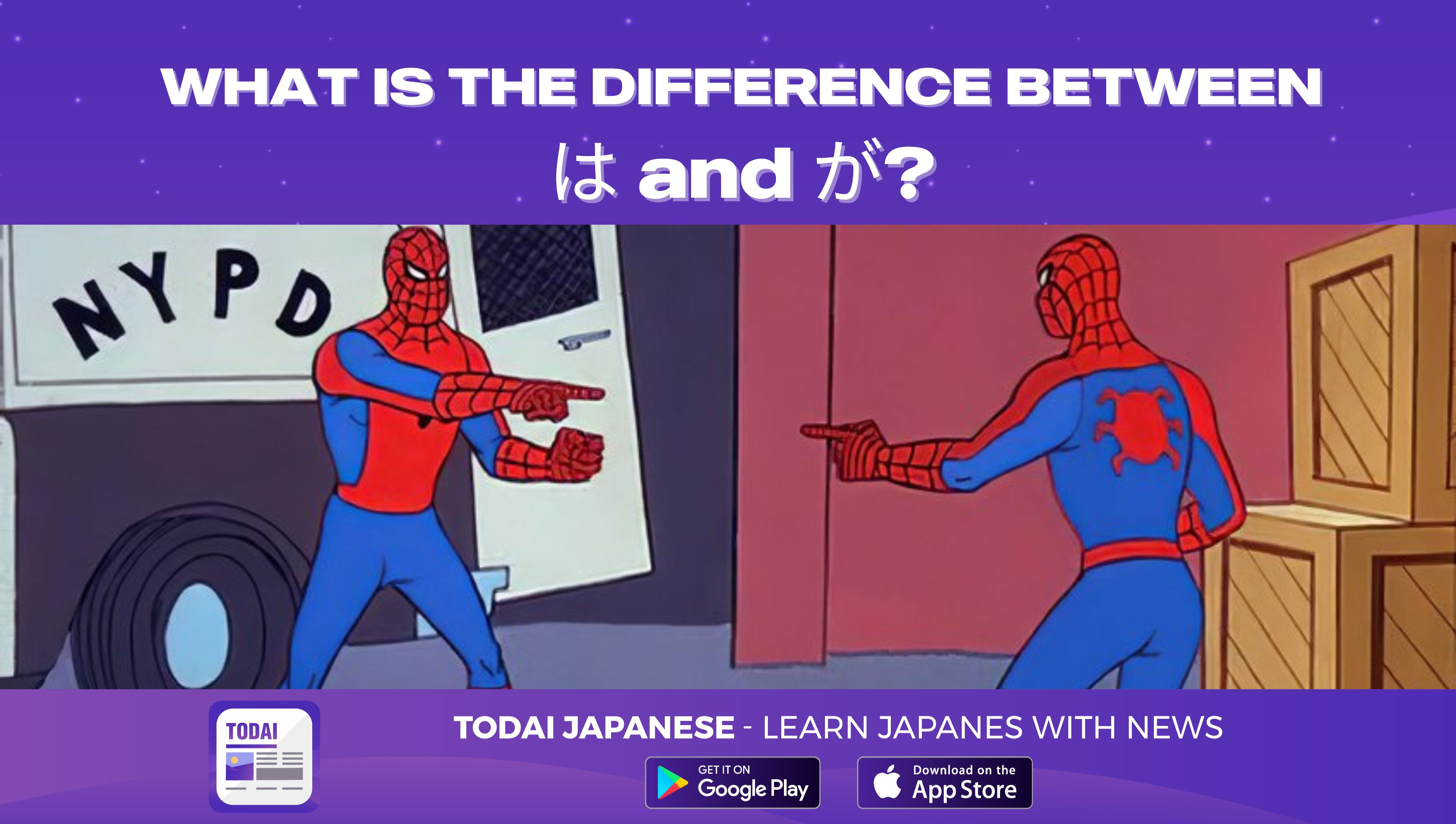WHAT IS THE DIFFERENCE BETWEEN は and が?
21/04/2025
1097

Contents
Many Japanese language learners face difficulty using は and が. As a native Japanese speaker, Japanese particles are very useful because they allow us to express various things and nuances with only one particle. But, the variety can be one of the biggest things to confuse learners.
In this blog, TODAI Japanese will try to clear up all doubts you may have about は vs. が.
1. When the sentence has a predicate that is a question word, and the new information that has not been known yet is located at the end of the sentence, the particle "は" is used.
For example:
A: しゃちょうはだれですか。Who is the director?
B: しゃちょうはたなかさんです。The director is Mr. Tanaka.
2. When the subject of the sentence is a question word, and the new information that has not been known yet is located at the beginning of the sentence and the old information is located at the end of the sentence, the particle "が" is used.
For example:
A: だれがしゃちょうですか。Who is the director?
B: たなかさんがしゃちょうです。Mr. Tanaka is the director.
The sentence is a descriptive sentence or a judgmental sentence
3. The particle "は" is used in descriptive sentences (現象文―げんしょうぶん): which describe facts, obvious things, events, etc.
For example:
11月20日はベトナムのきょうしの日です。November 20 is Vietnamese Teachers' Day.
4. In judgmental sentences (判断文―はんだんぶん): are sentences that express subjective judgments to describe states, events, etc. For these sentences, the particle "が" is used.
For example:
あるケーキを見ている)あのケーキがおいしそうですね。(You are looking at a cake and saying) That cake looks delicious.
5. The subject of the sentence is linked to the end of the sentence or not
- When the subject is linked to the end of the sentence, the particle "は" is used.
For example:
母はりょうりをつくるとき、よくうたをうたう。(My mother often sings while cooking.)
(The subject of the sentence "my mother" is linked to the end of the sentence "often sings".)
- When the subject is not linked to the end of the sentence, the particle "が" is used.
For example:
母がりょうりをつくるとき、よくてつだう。I often help my mother when she cooks.
(In this sentence, the subject of the first clause "my mother" is not linked to the subject of the second clause "I" which is omitted, meaning that "I" am the one who helps, not "my mother".)
Those are some points that are different between は and が! Follow TODAI Japanese if that can help you and
and download the application TODAI Japanese below to achieve your goal.
Category
App introduction
Study tips
German Culture
Interested

21/04/2025
6337
Top 5 best apps to learn German vocabulary
One of the biggest hurdles to overcome when learning is building up your vocabulary. In this blog post, we will explore the top 5 best apps to learn German vocabulary

21/04/2025
6075
How to Learn German Vocabulary Fast?
If you're learning German, you know that memorizing hundreds or even thousands of German words can be overwhelming. In this blog post, we will discuss some effective tips...

21/04/2025
5656
How to Stay Motivated while Learning German
with the right mindset and motivation, anyone can become proficient. In this blog post, we will discuss some tips on how to stay motivated while learning German

21/04/2025
5246
Stay Updated with Ease: Introducing the Easy German News App for Language Learners
Do you struggle to improve your German language skills? Do you find it challenging to read news articles in German? If so, then Easy German News is here to help
Your Comment
Comment (0)












